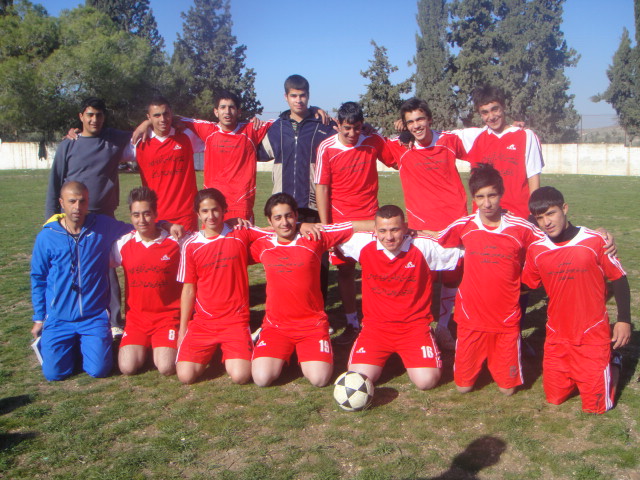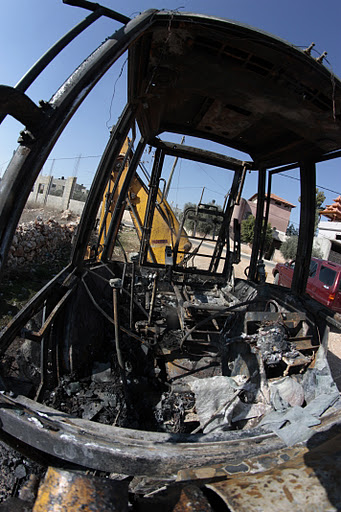Tag: Nablus
-
Burin: Youth football surrounded by monuments to Israeli occupation
by Ben Lorber 12 December 2011 | International Solidarity Movement, West Bank On the 7th of December, a windy Wednesday morning behind the boys’ school in the Palestinian village of Burin, 15 teenagers, dressed in red uniform, took to the football field under the coach’s whistle. As the team began its warm-up exercises, another youth…
-
Military teargases Kufr Qaddoum following nightly raids and arrests
by Alistair George 9 December 2011 | International Solidarity Movement, West Bank The Israeli military fired tear gas canisters directly at demonstrators in Kufr Qaddoum today in an aggressive response to the weekly protest against the closure of the main road linking the village with Nablus. Many people suffered from severe gas inhalation. After midday…
-
In Photos: The devastation of the Price Tag campaign in Bruqin
by Amal 8 December 2011 | International Solidarity Movement, West Bank The smell of fire and sorrow was evident in Bruqin today, which is located to the west of Salfit in the northern area of the West Bank. Even eight hours later the feeling of loss populated the air. At approximately 2:30 AM a group of…



